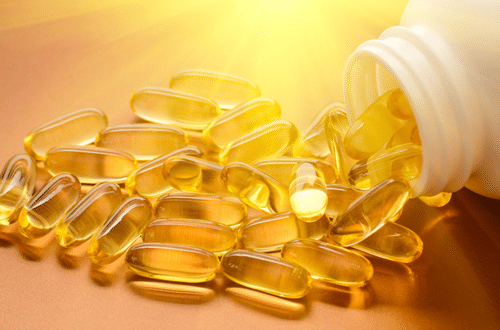Some 45 million Americans suffer from irritable bowel syndrome (IBS). It can make your life miserable. The stomach pain, bloating, diarrhea, constipation, and loss of appetite can be disabling.1
Drugs to treat the problem are not consistently effective. And they can have side effects that make the symptoms even worse.2
Now, a new study finds that taking one natural supplement can safely relieve IBS.
The research was performed by scientists at the University of Sheffield in England. They looked at previous study data on vitamin D.
Their analysis found that:3
- People with IBS are often vitamin D deficient.
- 70% of IBS patients who took a vitamin D supplement got relief.
- There was an inverse link between vitamin D levels and the severity of symptoms among IBS patients. In other words, the more vitamin D they had, the milder their symptoms were.
Dr. Bernard Corfe is the study’s lead author. “It is evident from the findings that all people with IBS should have their vitamin D levels tested. A large majority of them would benefit from supplements,” he said.4
He recently published the study in the European Journal of Clinical Nutrition.
The Vitamin D Deficiency Epidemic
Vitamin D deficiency is widespread. A recent study found that 42% of Americans don’t have enough of the vital nutrient.5
Your body produces vitamin D in response to sunlight. A deficiency is more likely in the winter, when people spend more time indoors.
Aside from its digestive benefits, vitamin D is essential for bone, brain, and immune health.
It also improves heart and vascular function, reducing arterial stiffness and inflammation. Studies link vitamin D deficiency to colon cancer.6
If you are suffering from IBS, ask your doctor to check your vitamin D levels. It is a simple blood draw.
Ideal levels are 40-60 ng/mL. If you are low, try to get 20 minutes a day of sunlight with arms and legs exposed.
Getting enough sun is not always possible in the winter. You can also raise your levels by eating foods high vitamin D. Good sources include pasture-raised eggs and oily fish such as wild-caught salmon, sardines, herring, and mackerel.
A more reliable way to increase vitamin D is with a supplement. We recommend 5000 IUs daily.
One more thing… And this is crucial…
If you take a supplement, make sure that you take the vitamin D3 form. It’s far more effective than D2, which is what most supplements are when they are labeled simply “vitamin D” without specifying the form.
One study found that D3 increased blood levels of vitamin D more than twice as much as vitamin D2.
Like this Article? Forward this article here or Share on Facebook.
References:
1 http://patients.gi.org/topics/irritable-bowel-syndrome/
2 https://www.mayoclinic.org/diseases-conditions/irritable-bowel-syndrome/diagnosis-treatment/drc-20360064
3 http://www.dailymail.co.uk/health/article-5311275/Daily-dose-vitamin-D-eases-agonising-IBS.html
4 https://www.eurekalert.org/pub_releases/2018-01/uos-vds012318.php
5 https://www.institutefornaturalhealing.com/2018/01/get-younger-arteries-fast-one-vitamin/
6 https://www.medicalnewstoday.com/articles/320741.php

